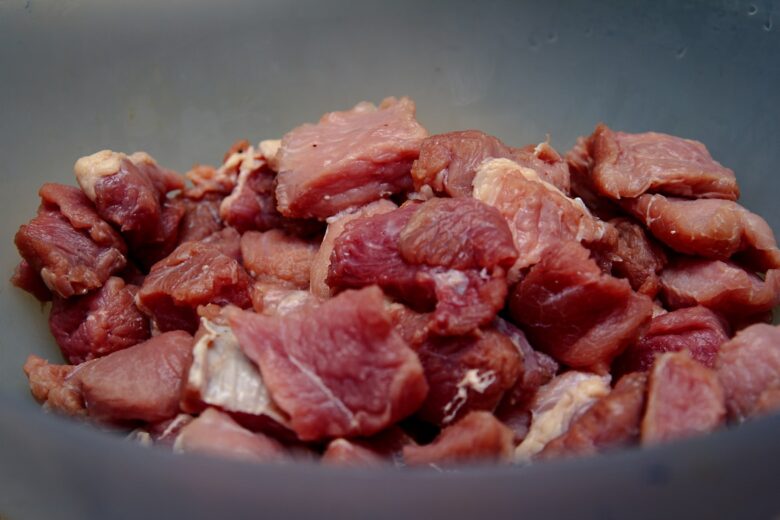Organ meat is a vital part of your dog’s diet just because it is packed with many vitamins and minerals that will improve your dog’s health. Organ food helps dogs improve their immune system, maintain strong muscles, and most importantly, a healthy heart.
However, the category of organ food is quite big since most internal organs from farm animals are safe for dogs. But not all of them come with the same benefits and it is important to maintain the right balance just to avoid further complications.
The top three favorites from the organ meat category are liver, heart, and kidneys. They are packed with iron, calcium, zinc, sodium, magnesium, as well as some helpful vitamins like vitamin A, Vitamin B12, Vitamin B6, Vitamin E, and more.
Other organ foods like lungs, spleen, tongue, and stomach are also safe to be incorporated into your dog’s diet, but they are a lot less nutritionally packed.
In today’s article, we will focus on the beef liver as a vital part of your dog’s diet and learn more about how it can be incorporated into your dog’s everyday meals.
Beef Liver

Before giving your dog beef liver, we need to learn more about its nutritional balance. A whole beef liver is a massive thing and it can weigh up to 30 pounds. The raw liver has a reddish-brown color and a soft texture.
The main job of the liver is to filter toxins out of the bloodstream. Some people think that the liver stores pollutants and it is not safe for eating, which is wrong.
Despite its filtering characteristics, the beef liver doesn’t store any pollutants and it is a super-food that provides all the helpful vitamins and minerals for your dog.
In fact, beef liver is considered the most concentrated source of vitamin A of any food. Vitamin A is very helpful for improving digestion and being a powerful antioxidant, it keeps the reproductive organs healthy.
Beef liver is also rich in vitamin B12 and folate, which is really important for the health of the nervous system and provides the necessary protection of red blood cells.
On top of that, beef liver is packed with trace minerals like iron and copper which are both vital for oxygen transportation in the bloodstream. Visit this site to find out more: https://whatthepup.spotandtango.com/is-beef-liver-good-for-dogs/
Benefits of Beef Liver for Dogs
Obviously, beef liver is packed with all the helpful nutrients that will help your dog live a healthier life. But let’s dig deeper and find out what are the benefits of incorporating organ meat, specifically beef liver into your dog’s diet.
Protein

Protein is an essential nutrient for your dog and it serves many different functions in your dog’s body. For example, it serves a vital purpose for your dog’s muscle growth, transportation of oxygen in the blood, boosts the immune system, and tissue repair. On top of that, protein is also an important source of energy.
It is important to understand that proteins are made of amino acids. However, amino acids can be split into essential and nonessential. Essential amino acids cannot be produced by the body of your dog and they should be supplied through diet.
Beef liver is an excellent source of protein providing anywhere between 25-30g of protein per 100g of the liver.
Fat
Fat is often forgotten even though it plays an important part in the nourishment of dogs. Fat provides 2.25 times more calories per gram, which makes it a great source of energy for your dog.
Additionally, fat is also a crucial source of essential fatty acids. Fatty acids are very important for strengthening the immune system of dogs, reducing inflammation, increasing its ability to fight cancer, support heart health, and brain development.
With that said, beef liver is a great source of energy-containing many beneficial fatty acids containing 133 calories per 100g.
Vitamins

When it comes to vitamins, most people immediately think about fruits and vegetables, but the beef liver can also supply your dog with all the essential vitamins for a healthier life.
Vitamins can be classified into two categories, fat-soluble (vitamins D, A, E, K) and water-soluble vitamins (vitamins C and B).
With water-soluble vitamins, your dog gets the perfect balance of protein, carbohydrate, and fat, which helps your dog transform nutrients into energy. Water-soluble vitamins are not stored in the body and must be consumed daily.
On the other hand, fat-soluble vitamins are very important for bone formation, cell membrane functioning, and improved vision for your dog.
As we mentioned earlier, beef liver is the most densely packed food with vitamin A with 16,898 IU compared to Kidney with only 1,397 UI. Additionally, the beef liver also contains vitamin B12 (59.3mcg) Vitamin D (49mg), Vitamin B6 (7.17), Vitamin E, and much more.
Minerals
Last but not least, we have minerals that are also critical for many different functions in your dog’s body, from cartilage formations, enzymatic reactions, transportation of oxygen in the blood, and normal muscle and nerve function.
Minerals are also split into two categories, minerals, and trace minerals. Minerals (calcium, sodium, chloride, potassium, magnesium are found in larger amounts in the body compared to trace minerals. They are also required in larger quantities than trace minerals and the main source is through your dog’s diet.
This is where the beef liver comes in handy. Beef liver contains many vital minerals for your dog, such as copper, iron, magnesium, sodium, selenium, zinc, potassium, and more.
How Much Organ Meat Should be in the Raw Diet of Your Dog?

There are many debates on how many raw organs you should give to your dog. In the end, it all comes down to maintaining the right balance. Try mixing up their diet and avoid giving them raw organs every day.
Most people decide to follow the 80-10-10 rule, or 80% muscle meat, 10% bone, and 10% organ meat. Other people decide to limit the supply of raw organ meat to 25% of their dog’s meal.
Either way, raw organ meat like liver comes with very helpful benefits for your dog and you should incorporate it in your dog’s diet at least once a week.


